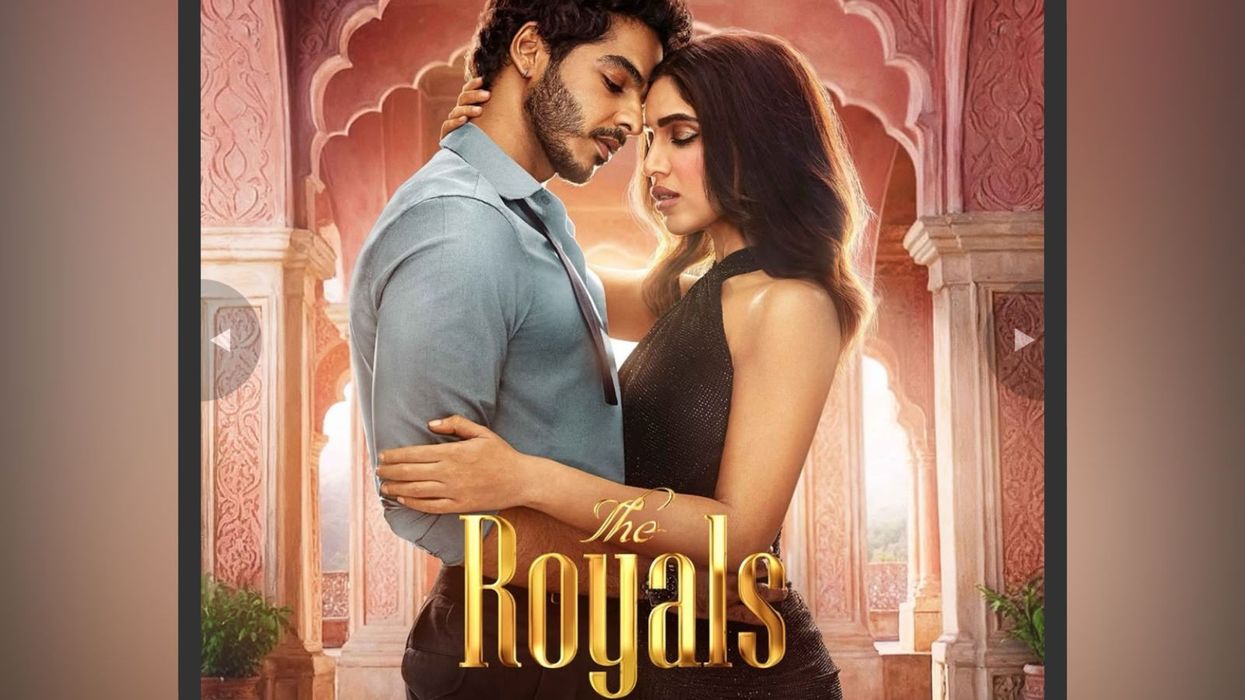Netflix’s latest Indian original, The Royals, delivers a glossy spectacle of aristocratic opulence, familial chaos and unexpected entrepreneurial rescue. Directed by Priyanka Ghose and Nupur Asthana and produced under the banner of Pritish Nandy Communications, the series is created by Rangita and Ishita Pritish Nandy, with writing by Neha Veena Sharma. While the series dazzles visually and offers moments of wit and warmth, it occasionally falters under the weight of its own grandeur and inconsistent script.
Set in the fictional princely state of Morpur, the series follows Aviraaj Singh (Ishaan Khatter), a new-age polo-playing prince who is more concerned with charm and leisure than tradition and responsibility. When his father, the Maharaja (played by Milind Soman), passes away, Aviraaj and his eccentric royal family discover they are drowning in debt. The family, long accustomed to showcasing heirloom jewels, fine wines and extravagant decor, must face the uncomfortable truth: the legacy of royalty does not guarantee financial stability.
Enter Bhumi Pednekar as Sophia Kanmani Shekhar – or “Aam Kumari” (common princess) – a sharp, ambitious CEO with a plan to turn the rundown royal palace into a luxury heritage B&B. Her character arrives with clarity and drive, offering a dose of modern pragmatism to counterbalance the royal family's outdated traditions and lavish pretence.
What follows is a mix of light-hearted romantic tension, family drama, and a battle of ideologies between old-world nobility and contemporary entrepreneurship. As Sophia and Aviraaj navigate egos, family feuds and the logistics of hospitality, sparks inevitably fly.
Visually, The Royals is a treat. From palatial interiors to carefully curated costumes and ornate artefacts, the production design spares no detail. The cast, equally photogenic, complements the setting well, with Ishaan Khatter and Bhumi Pednekar bringing energy and chemistry to their roles. Pednekar particularly stands out, portraying Sophia with elegance, control and a sense of grounded leadership. Her character steers the storyline with authority and nuance, taking charge in situations that threaten to unravel into chaos.
The Royals | Official Trailer | Ishaan Khatter, Bhumi Pednekar, Zeenat Aman, Nora FatehiNetflix India
The supporting cast includes a mix of familiar and refreshing faces. Zeenat Aman makes a much-anticipated return as the eccentric and fashionably aloof Bhagyashree Devi, adding a vintage charm and glamour to the ensemble. Dino Morea turns up the style quotient, while Vihaan Samat, as Digvijay Singh, brings calm and sensibility to the chaotic royal household. His character plays a pivotal role, being the one to bring Sophia into the fold, recognising the need for innovation in a crumbling legacy.
The series touches on a number of contemporary themes, including gender dynamics, queer identity, and the changing definition of royalty in a modern world. It earns credit for attempting to address these topics, although at times the script lacks the depth or consistency to fully explore them. Some storylines and character arcs feel underdeveloped or overly convenient, and while the tone is mostly light and entertaining, the writing occasionally fails to maintain momentum.
Despite its flaws, The Royals succeeds in presenting a fresh take on royal life, revealing the financial and emotional cracks beneath a seemingly perfect surface. The idea that royalty today is more façade than fortune gives the show an intriguing edge, even if it doesn’t fully commit to dissecting the implications.
The show works best when it leans into its comedic timing and character-driven moments, particularly in the interactions among the family members. The sibling dynamic, especially involving Diggy and Jinnie, adds warmth and relatability amidst the extravagance.
In conclusion, The Royals is a visually stunning, occasionally sharp, and ultimately enjoyable drama that balances satire with soap opera flair. While the writing may not always match its ambition, the performances – especially from Pednekar and Khatter – help elevate the show beyond its narrative gaps. For viewers in search of a light, aesthetically pleasing series with a mix of modern flair and royal nostalgia, The Royals offers an engaging, if uneven, watch.





